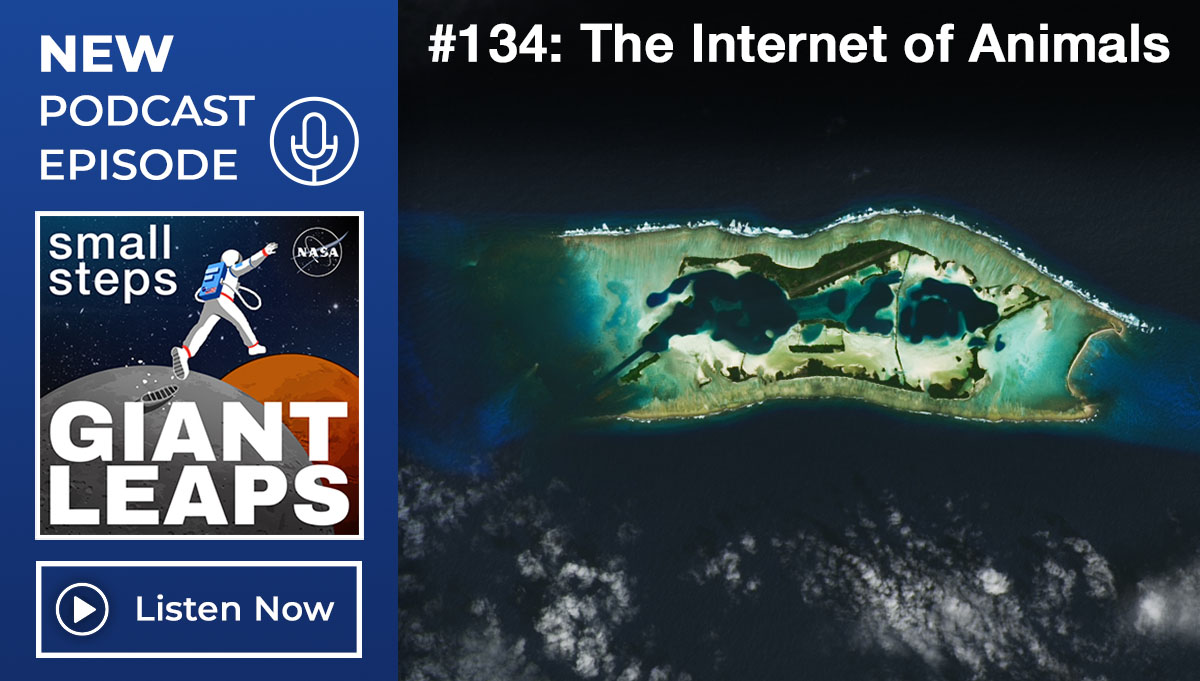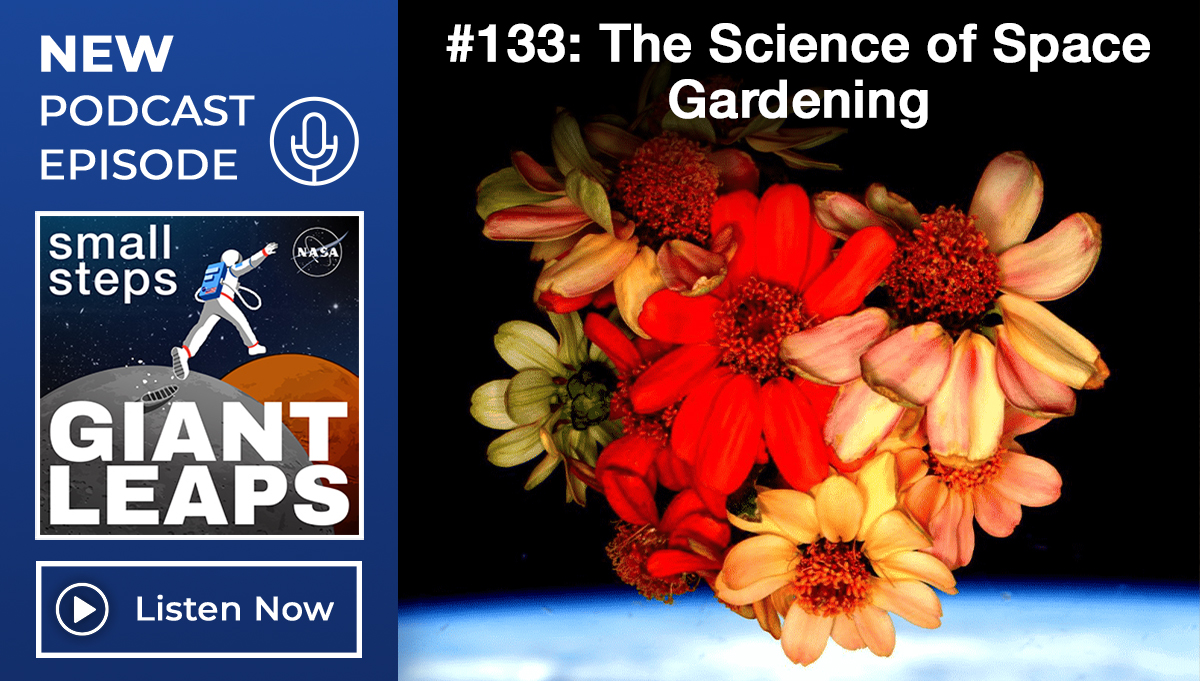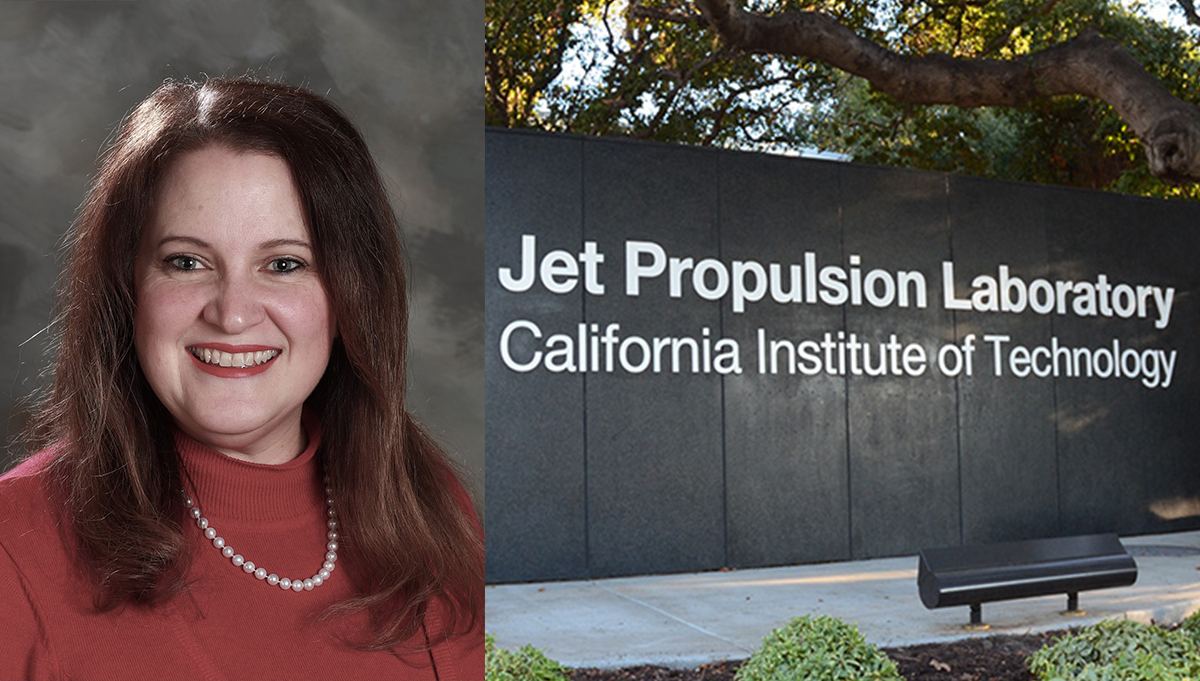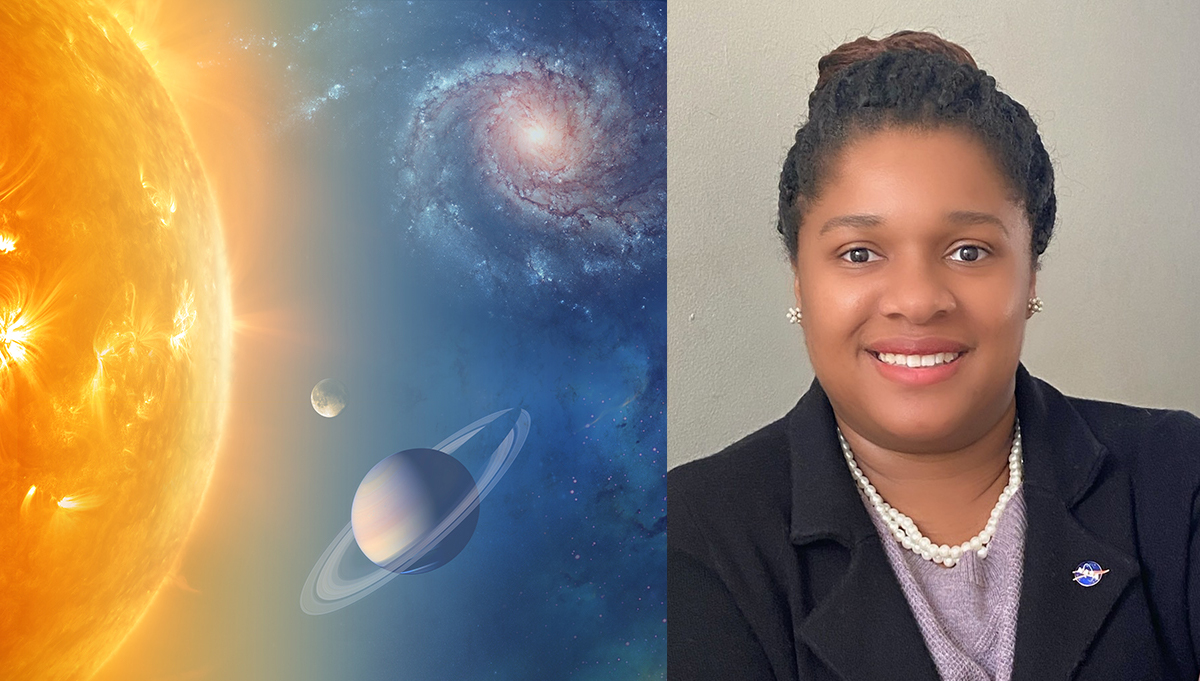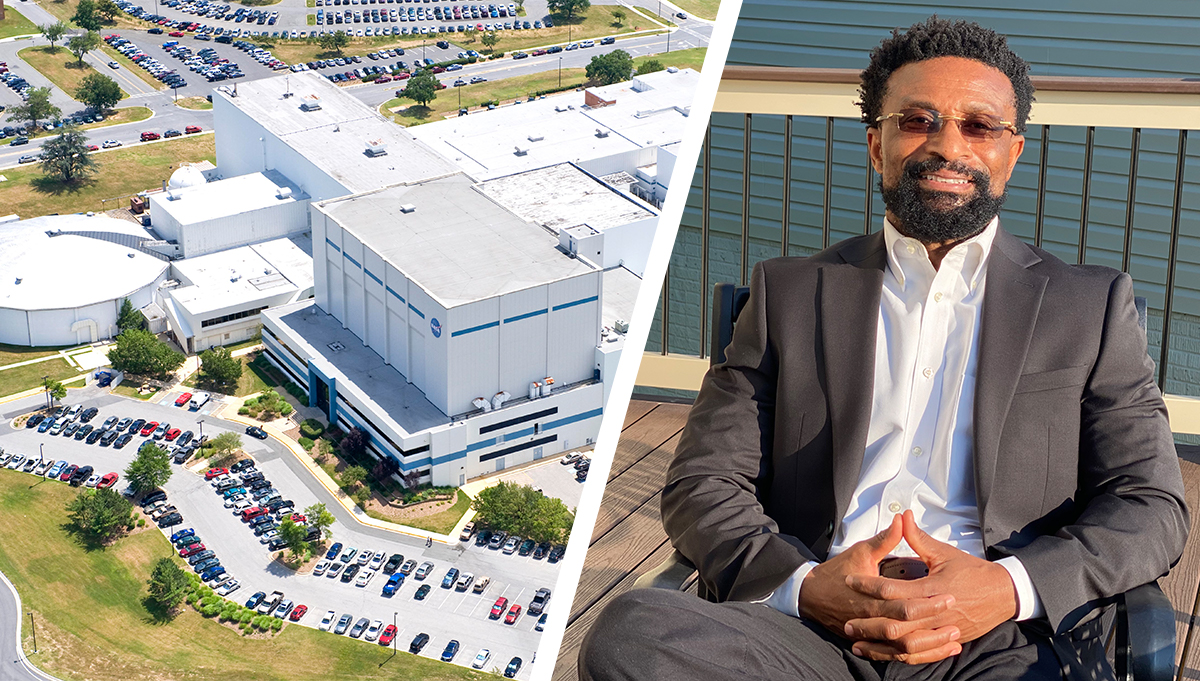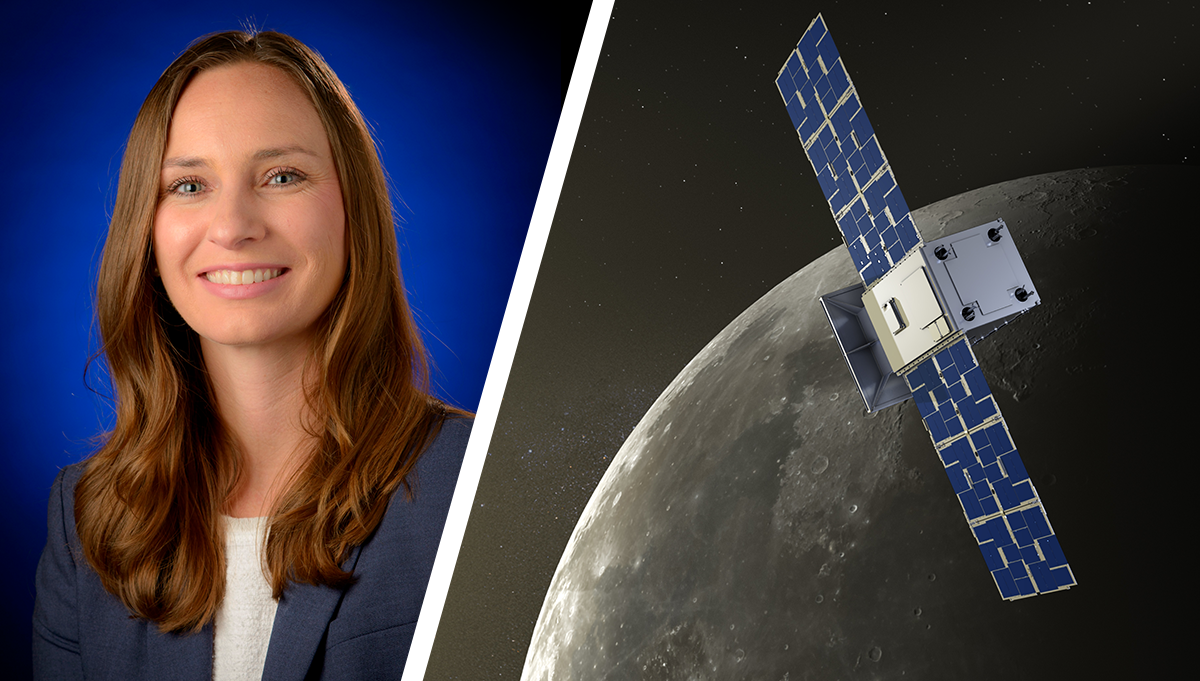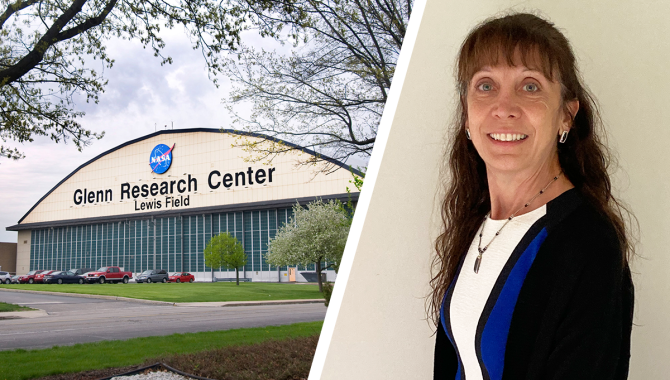
Glenn Research Center CKO Janice Romanin.
Credit: NASA
Janice Romanin discusses knowledge sharing at NASA’s Glenn Research Center.
Janice Romanin is the Chief Knowledge Officer (CKO) at NASA’s Glenn Research Center (GRC). Romanin has served as the Rocket University Program Manager and worked in the GRC Chief Engineer’s Office. During nearly 30 years at GRC, she has supported various flight projects such as Artemis I and the Communications, Navigation and Networking reConfigurable Testbed (CoNNeCT) mission. Romanin was Lead Systems Engineer for the Human Research Program, contributing to astronaut health and safety, and was Lead Engineer on various combustion and fluid shuttle and space station experiments.
Where does the knowledge management function reside within your organization?
The GRC Center Director has delegated the responsibility for implementing GRC knowledge management across the center to the Director of the Research and Engineering Directorate, who appoints the CKO. The GRC CKO has the responsibility and authority to implement, operate and improve knowledge activities within the center. The Program/Project Management Executive Panel (PPMEP) is the executive sponsor to the CKO. The PPMEP guides and improves GRC’s program/project management framework and operating methods, including processes, tools, best practices, training, and execution metrics.
What are your thoughts on how knowledge sharing affects mission success?
Having worked several space flight projects over the years, I realized there was a breakdown or gap between knowledge capture and sharing. I remember sitting in a meeting discussing an issue with a valve on an engine for a flight project, and how much time the team was spending troubleshooting the problem. Luckily, I had heard about a similar issue on another project and the team was able to contact the subject matter experts to get the information needed to come up with a solution. I have observed this happening multiple times a week across projects, and there is often no one in the room who knows where to look for answers. It’s not difficult to imagine the time and money that could be saved if these lessons were not only captured but also effectively shared and infused into current processes and procedures. We’d save on schedule and budget and mitigate risk.
How do you think NASA’s technical workforce benefits from knowledge sharing?
At GRC, the Knowledge Management Team started a specific infusion process that identifies what people, processes and repositories can most benefit from our knowledge capture efforts and then verifies that the knowledge gets there. Currently, this is most often used with project lessons learned, but it is designed for use with any captured knowledge. When knowledge is shared and infused, the technical workforce has the advantage of learning from the mistakes and successes of others. Engineers, researchers and project managers alike can have the knowledge and tools they need to be more productive and efficient. I’ve found this to be especially helpful in the initial stages of planning a project or program since much of the success depends heavily on how well you plan it up front.
Are there any successful knowledge efforts or best practices in your organization that you’d like to highlight?
We have a phenomenal Lesson Learned process. I can’t take credit for it since our Knowledge Subject Matter Expert created the process prior to me coming into the CKO office, but I am surely glad I benefit from utilizing it. I can tell you it has been very successful in gathering knowledge in a way that is useful not only for the current project but for future projects as well as assessing recommendations for potential changes to policy, procedures, guidelines and training. We have experienced many benefits and successes as a result of this process.
Do you have a favorite story or example of successful knowledge sharing?
Our KM team facilitated a Lessons Learned (LL) workshop for an aeronautical wind tunnel test. After completing the final report, I spoke with the systems engineer and several leads on the project about the main issue I observed. It was apparent that the team was not familiar with how to plan a project initially because they never had to do that before this particular test. This lack of experience and knowledge led to several challenges, including issues with vendors, missed milestones, miscommunication and more. The ultimate result of this LL activity was the creation of a class on how to initially plan a low Technology Readiness Level (TRL) project. The Systems Engineering Division presented it to the Aeronautics Test Branch, and this resulted in the successful planning of future test projects. The branch is continuing to use this information for future training, and it is available on the GRC KM website.
Are you observing any trends or cultural shifts that affect knowledge management going forward?
Early and mid-career professionals can find information easily and quickly on the internet. However, they seem to lack the tacit knowledge needed to make the best use of it. Maybe 10 or 15 years ago, we didn’t have all this information at our fingertips, so we were forced to talk face-to-face with subject matter experts to learn the unwritten rules and know-how that leads to fewer errors. It’s a weird situation of having more information than ever before, but still not being able to use it most effectively in real-world applications. At GRC, the KM team is working on showing the value of blending both worlds (tools and communication with real people) for a well-rounded workforce.
Our KM Team has also noticed an increased interest in Knowledge Management as a result of the forced remote work environment over the past two years. The increased interest has propagated the existence of communities of practice; the creation of more databases to store and share knowledge; and the awareness of the need to engage in promoting digital transformation.
What’s the biggest misunderstanding that people have about knowledge?
I think the biggest misunderstanding involves perceived ownership of knowledge. We have been presenting ‘what knowledge management is’ to many organizations over this past year. We have branded it ‘The KM Roadshow.’ We are using it to educate people on the fact that the CKO is not trying to manage everyone’s knowledge, but instead trying to help people manage their own knowledge. We are showing them how to effectively and efficiently manage knowledge by using various tools and processes. We are educating them to take ownership of their knowledge and learn how to make it beneficial for themselves and across all organizations.



